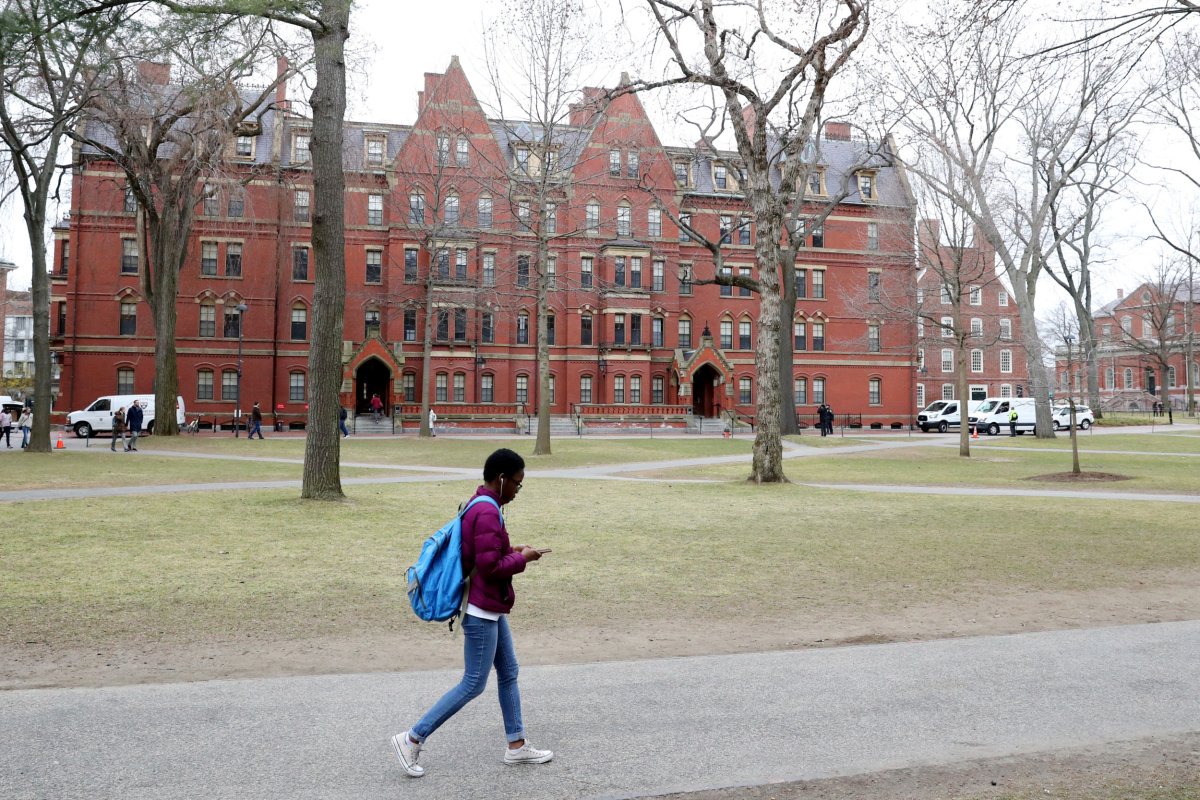Last week, Harvard Medical School dean George Q. Daley announced that his institution—America's number one-ranked medical school according to U.S. News and World Report—will no longer participate in that publication's coveted system of institutional rankings. For years, Harvard Med has placed first overall. It also recently ranked ninth best for training in primary care. Earlier this week, the medical schools of Columbia, Stanford, and the University of Pennsylvania also withdrew from the rankings, as did Mount Sinai.
The brewing mass dropout of medical schools follows the sudden departure last fall of most leading law schools from the U.S. News rankings, which occurred shortly after the U.S. Supreme Court heard opening arguments in two cases challenging the use of race-based affirmative action in higher education admissions. Harvard is one of the defendants in that matter, and the justices' initial questioning suggested that the Court will likely side with the plaintiffs and hand down a landmark ruling against the use of racial preferences.
On the surface, Daley's explanation for his decision closely resembles the rationale advanced by law school deans who have acted similarly. "Rankings cannot meaningfully reflect the high aspirations for educational excellence, graduate preparedness, and compassionate and equitable patient care that we strive to foster in our medical education program," he claimed in an expertly tossed word salad of meaningless higher ed jargon and hollow woke platitudes.
Daley says he had considered withdrawing from the rankings system since he became Harvard's dean of medicine six years ago, and credits his law dean colleagues with pushing him over the edge. But like them, it would seem that his deliberations coincidentally concluded at the just the right moment to avoid legal blocks on standard means of "promoting diversity" via admissions that the Supreme Court will likely hand down this term.
U.S. News's rankings are in large part determined by the grades and test scores of admitted students. Since white and Asian students tend to outperform other minority groups in both categories, maintaining the high rank of elite schools in an honest way would depend on admitting higher performing whites and Asians. The natural result would be a less diverse student body, selected on a race-blind basis and according to demonstrated academic talent.
The American Left believes this is a horrible idea. But from the woke administrator's point of view, continuing to admit underperforming minority students could soon place them on the wrong side of the law if any aggrieved party subpoenaed their admissions data and related communications with U.S. News.
Solution? Ditch the rankings. Extra points if the responsible administrator can mimic Daley's puffery to try to make the decision look like anything other than what it really is.

Some of his colleagues are certainly competitive in that field of endeavor. J. Larry Jameson, dean of Penn's Perelman School of Medicine, claims that his institution may continue to "encourage the acceptance of students based upon the highest grades and test scores," but added that "we strive to identify and attract students with a wide array of characteristics that predict promise...including creativity, passion, resilience, and empathy," characteristics that sound as irrelevant to the study of medicine as skin color, which is the only admissions issue before the Supreme Court.
Lloyd Minor, dean of Stanford's School of Medicine, announced new metrics that he believes will address "key priorities that our students have identified as important to their educational experience." He added to this shocking admission that his institution's students now have a major role in determining its pedagogy a rare honest declaration that the new system "will reflect our core values, emphasizing diversity, equity, and inclusion" (DEI)—the Holy Trinity of race-based woke indoctrination across institutions.
Perhaps most instructive of all is the pliant Katrina Armstrong, dean of Columbia's Vagelos College of Physicians and Surgeons. Last March, she praised the rankings system, which she then claimed "reflect the hard work done every day to prevent and treat disease...and ensure that our excellence reaches those who need us in our neighborhood and throughout the world." For good measure, she even gave "special recognition" to her white male predecessor for the school's "steady rise" from 11th place to third.
Ten months later, however, Armstrong now decries the rankings for what she calls their "self-reinforcing criteria...rather than measuring a school's success in educating a diverse and well-trained cohort of doctors." Rather than defending "excellence," as she did less than a year ago, she suddenly despairs that "prioritizing these scores rewards well-resourced applicants without regard for selecting the individuals who can best serve the future needs of a diverse and changing world." Translation: White and Asian students often get higher test scores, but we need to let in less qualified minorities because wokesters demand it—and now we're afraid of getting sued if we admit that we do it.
Wokeness has pervaded American medical education through institutional capture, reputational threat, exploiting the utter lack of principle that now seems prerequisite for a career in higher education administration, and other illiberal tactics well evinced elsewhere. Like virtually all fields of study, medical education is now subject to deconstruction for its supposed "systemic racism" and the inherent sin of "whiteness." In many schools, aspiring doctors and medical faculty members alike must declare their allegiance to and receive instruction in DEI principles on par with medical knowledge, just as students of any subject in the Soviet Union also had to master the tenets of Marxism-Leninism. Or else.
For anyone concerned with the quality of our nation's health care, it is time to stand up. Few will.
Paul du Quenoy is president of the Palm Beach Freedom Institute.
The views expressed in this article are the writer's own.
Uncommon Knowledge
Newsweek is committed to challenging conventional wisdom and finding connections in the search for common ground.
Newsweek is committed to challenging conventional wisdom and finding connections in the search for common ground.
About the writer
To read how Newsweek uses AI as a newsroom tool, Click here.






